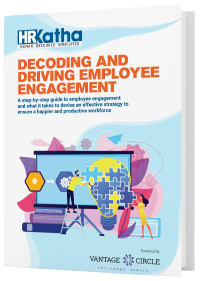Organizational Culture and its Shift Post-Covid Crisis

Imagine yourself visiting a football game with your party wear or going to a fancy restaurant for dinner wearing your favorite jersey. Within a few minutes, people would start rolling eyes at you, and some may think you are demented and show empathy. This is how culture work. People have been trained to believe the norms and expected to act and behave in specific ways (based on culture).
The organizational culture is no different. It is defined as the underlying beliefs, assumptions, values, and ways of interacting that contribute to an organization's unique social and psychological environment. The company members are expected to understand the culture of the company and be a part of it. Only to accomplish the company goals and missions together, believing and acting on the cultural values.
The Covid crisis has brought a massive change in the way an organization functions or brands its culture. Even most companies are ready with the technical aspects and keeping everyone connected to run the business smoothly. Still, the cultural change that is undergoing can never be ignored.
Let's discuss the significant cultural shift organizations are facing after the Covid crisis.
The New Normal
Workplace culture has moved to the home, or should we say work from home culture? After the unprecedented outbreak, organizations have asked to work from home for employee safety and less social interaction. Employees have adjusted themselves to this new normal and have been working from home for months now. In-person meetings are no longer on the scene. Everyone keeps themselves updated with video conferencing or connecting each other with other digital tools. A massive number of workplaces have gone remote overnight. The way employers and employees interact with each other has taken a shift with this new culture.
If we look at the current stats around the world on remote working, we can presume that remote working is here to stay, and it will bring changes in the culture and bring more layers to it.
Listen to our podcast on: How to build a culture in times of crisis with Saurabh Nigam.
Remote Culture and New Hires
As discussed, organizations worldwide are adapting to the new normal and maintaining the continuity of their businesses. Because even at challenging times, the economy cannot stop. We cannot afford to do it. That is why organizations try their best to accommodate their employees by their new policies on work from home and safety. And technology is backing them to function through digital tools to ensure smooth functioning of the workflows.
Along with that, the organizations are also hiring new employees. This is testing their organizational culture since new hires try to fit into the new normal without having a prior understanding of the culture. Like we all know, organizational culture is the personality of a company. It is unspoken but felt. Organizational culture is something that shapes businesses and their people. When employees do not have the physical experience of the culture, it is difficult for them to mold into it. Every organization has its own culture. Therefore, understanding the values and approaches of a new working environment can leave people confused and eventually unproductive.
The Digital Workplace
Remote working or telecommunicating has blurred the professional and professional lives of the employees. Even though remote working has its perks like flexibility and freedom, how far it can work for both employers and employees is what we all need to ask. The digital workplace cannot compensate for the cultural challenges if not taken care of by the employers and the employees jointly. Both the party should move forward, keeping the culture alive to sustain in the long run.
Adapting to the new digital workplace and being productive for the moment would not help much in the long run unless the intricacies of the situation are well understood.
Organizational Culture is What It Says and Does
In these few months, the information that we all gathered around organizational culture tells one thing loud and clear: "the culture and values of an organization are often not aligned with its action." The ultimate purpose of any organization is customer experience and how it reflects through its culture. And how to stay strong and support in times of need.
Many organizations are laying off their employees without any proper justification, and some are cutting down salaries. This tells a lot about organizational values. But there are also organizations whose choices and actions define a lot about their cultures.
Best Western hotels in the UK are that one example. At the beginning of March, when the chain suffered from high cancelations due to the virus, the management first thought about turning empty hotels into improved hospitals. However, the most significant necessity was the accommodation of medical workers, low-risk patients, and at-risk individuals. Within a week, London's first repurposed hotel opened. The segment has now given 15,000 rooms through local initiative and swift decision-making while keeping its employees employed. Throughout, Best Western has been guided by two of its fundamental cultural values: service excellence and being a good community member.
This gives strong points to Best Western and leaves a message to introspect if organizations truly abide by their culture or it is just a norm.
Related: The Four Distinct Types of Organizational Culture and its Advantages

Vantage Circle is a simple AI-powered Rewards & Recognition Platform for upgrading your employee experience and engagement for better productivity.






